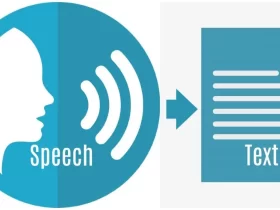The desire to make a change can fluctuate from person to person, situation to situation, and over time. Some of us are resistant to change, while others are unable to acclimate, and the majority of us are not yet fully ready. Know first what are motivational interviewing techniques are.
The motivational interviewing approach to therapy positions the patient at the center of the therapeutic process and is based on Carl Rogers’ humanistic psychology. He argued that for a person to “grow,” they require an environment that provides genuine openness, which permits self-disclosure, acceptance, which includes being viewed with unconditional positive regard, and empathy, which enables them to feel listened to and understood.
Engaging patients in the process entails identifying which aspects of their care should be modified, eliciting their perspectives on why those aspects should be modified, and reaching consensus on an executable strategy.
Self-determination theory is an example of a useful psychological theory that explains the effectiveness of motivational interviewing. It asserts that we have a greater chance of altering if our three fundamental psychological requirements are met.
Choice freedom in all decision-making matters
Connectedness with others and a sense of being supported by significant others in our lives, including medical professionals.
Another beneficial hypothesis is that when we hear ourselves discussing change, our motivation tends to increase. This theory is the basis for the self-talk effect. In motivational interviewing, this is referred to as “change talk.” It appears that change discourse is predictive of improved outcomes, according to a new body of research that is currently analyzing the language patients use when discussing change.
Motivational Interviewing Questions and Techniques
Invoking a person’s inherent motivations for change serves to facilitate the process of encouraging the patient to become an active participant in the transformation process. This is accomplished by employing motivational interviewing.
This is the case despite ambivalence and what frequently appears to be resistance, both of which are considered normal components of the transformation process.
Evoking is one of the most essential aspects of motivational interviewing, but it is also one of the most challenging skills to acquire because it is so dissimilar to conventional advice-giving.
Eliciting change talk, also known as OARS, is a procedure requiring four crucial communication skills that support and enhance the process. Motivational interviewing demands the following abilities:
Open-ended inquiries
Affirming
Actively reflecting while listening
In conclusion, open-ended queries in the context of motivational interviewing allow us to gain a deeper understanding of the client’s perspective and attitudes toward change. They are also essential to the process of constructing and strengthening a collaborative relationship. Lastly, they are helpful in invoking the client’s motivations for change, which is an essential phase in the process of change.
It appears that this is a very challenging endeavor. It makes sense that you feel overburdened.
It is possible to use summarizing as a fruitful application of reflective listening. It is more effective to encourage the client to continue speaking by restating what they have already shared in our own words and in the form of a statement, as opposed to posing the statement as a question. The most significant benefit of reflective listening is that it facilitates client engagement. This is particularly useful when the client is agitated or angry, as it can help them to calm down and make them feel heard.






